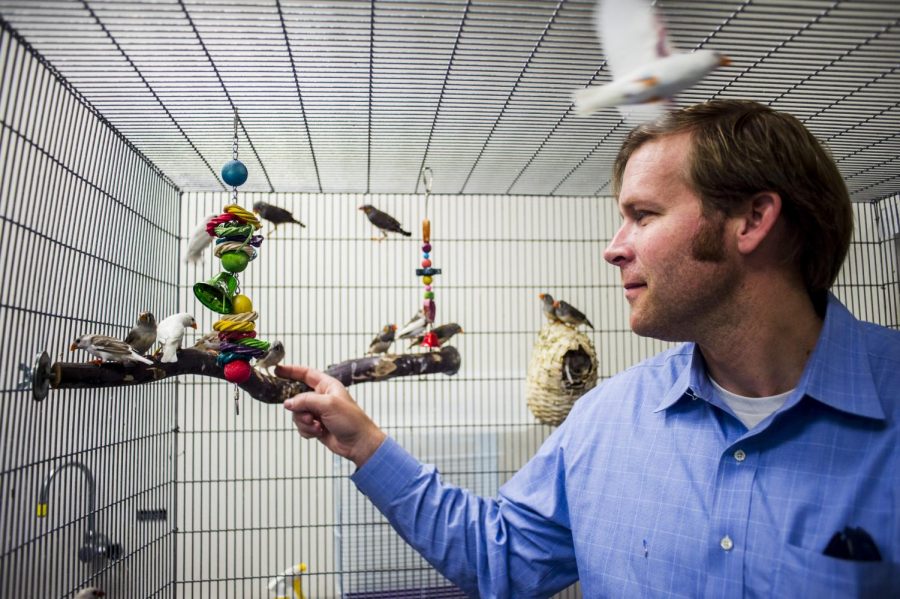WKU professor studies songbirds and sleep patterns
April 19, 2016
FOR THE BIRDS
An assistant professor in WKU’s biology department has received a grant to study the sleep patterns of songbirds and investigate whether his findings can be used for human medical treatments.
Noah Ashley has been awarded a National Science Foundation research grant to study the sleep patterns of arctic songbirds in Barrow, Alaska.
The research will consist of studying two species of arctic breeding songbirds, snow buntings and Lapland longspurs, both of which exhibit extreme sleep patterns during the summer months, and their breeding season in Alaska.
The grant began on April 15 and will continue until 2021, with an expected total of $965,048.
This grant will not be the first time Ashley has studied the sleep patterns of birds, as his post-doctoral research was in regard to the bird’s circadian rhythm.
“Any mammal is going to synchronize their circadian rhythm to the light dark cycles, but during [the summer] there is no light dark cycle,” Ashley said.
The interest in sleep patterns came during his second post-doctoral research and started with transmitters in hamsters to study their sleep.
“When I came to Western, since my passion is birds, I wanted to get back into my bird research, and I love working in Alaska,” Ashley said. “The next step was to study their sleep patterns.”
The two different species of birds that Ashley will be studying show activity for 20 hours a day for two months straight.
To study their sleep, tiny transmitters will be attached to the birds via a harness with wires attached to their heads and neck muscles.
We want to understand the mechanics of how the birds are able to cope, and see if the findings can be applied to humans for therapy and drug development that we’ve never thought of.
A second component of the research will be the manipulation of the birds’ sleep and observing how it affects their reproductive success.
“We’re going to give caffeine to the birds, as well as giving another group melatonin, to see how each group is affected down the road,” Ashely said.
There will also be a captive study conducted with birds being brought back to the University Farm for study.
In addition to the research component of the grant, there is also an outreach and student involvement component.
Students from the science teacher program at WKU will be offered the opportunity to conduct a weeklong internship in Barrow and teach at the local middle and high schools in arctic research.
A course will be developed to help these students prepare for the internship, and will be offered next spring.
A cross-cultural program will also be formed during the summer with the Native Alaskan people of Barrow and students from Gatton Academy that are interested in conducting field research.
“They’ll be able to share different types of cultural ideas, while being able to be exposed to arctic science,” Ashely said.
The internships and programs will begin next summer during the months of June and July.
Ashley hopes that by conducting this research, they will be able to compare the sleep patterns to those of humans and help insomniacs and those with trouble sleeping.
“We want to understand the mechanics of how the birds are able to cope, and see if the findings can be applied to humans for therapy and drug development that we’ve never thought of,” Ashley said.
If any student is interested in learning more about the research, or is interested in conducting field research with Ashley, they are encouraged to email him at [email protected].
*Due to an error, the byline of the print edition erroneously named Emma Collins as the author of this story. The reporter was actually Carly Mathews. The Herald regrets this error.





















![Students cheer for Senator at Large Jaden Marshall after being announced as the Intercultural Student Engagement Center Senator for the 24th Senate on Wednesday, April 17 in the Senate Chamber in DSU. Ive done everything in my power, Ive said it 100 times, to be for the students, Marshall said. So, not only to win, but to hear that reaction for me by the other students is just something that shows people actually care about me [and] really support me.](https://wkuherald.com/wp-content/uploads/2024/04/jadenmarshall-600x422.jpg)

